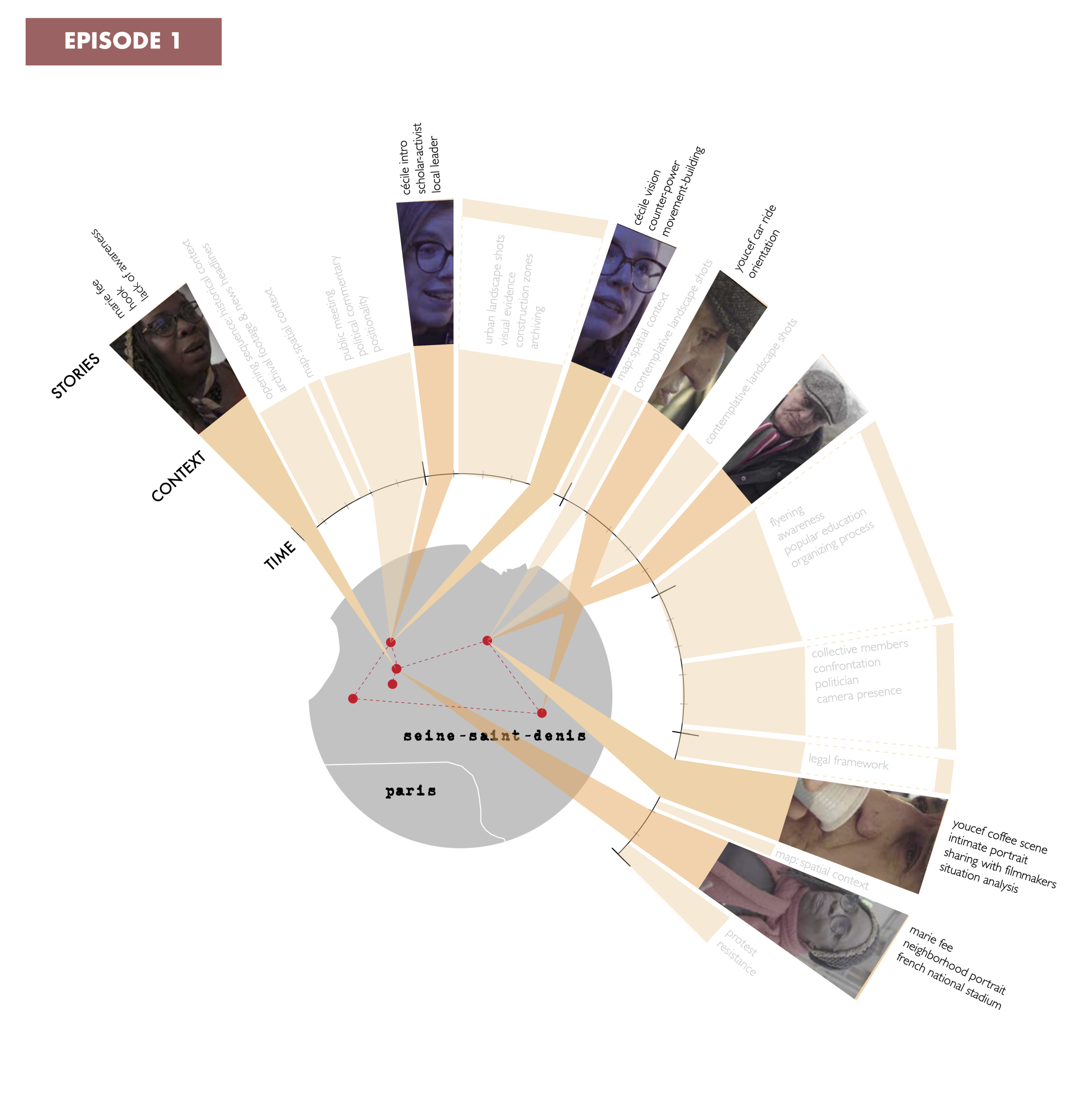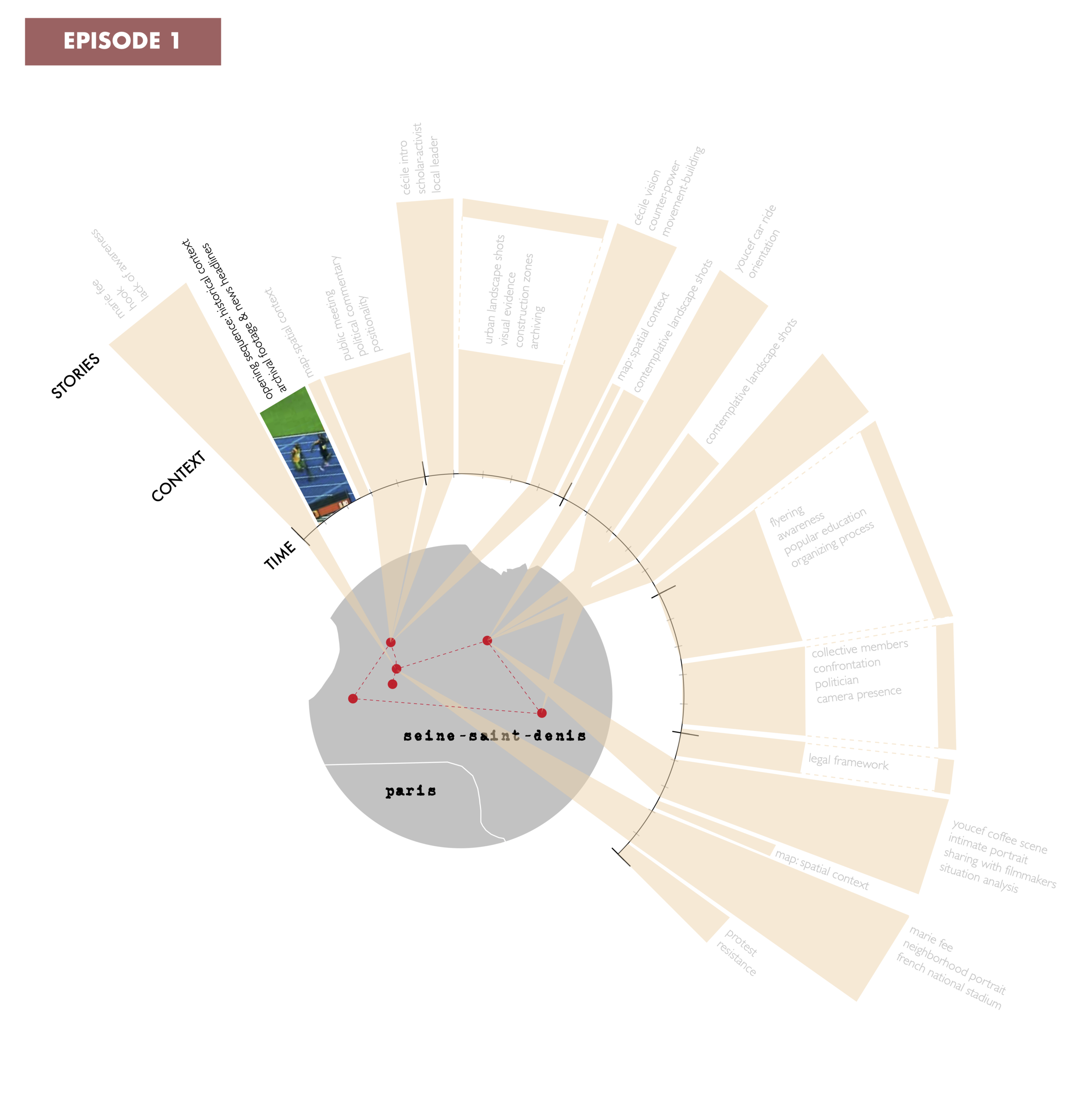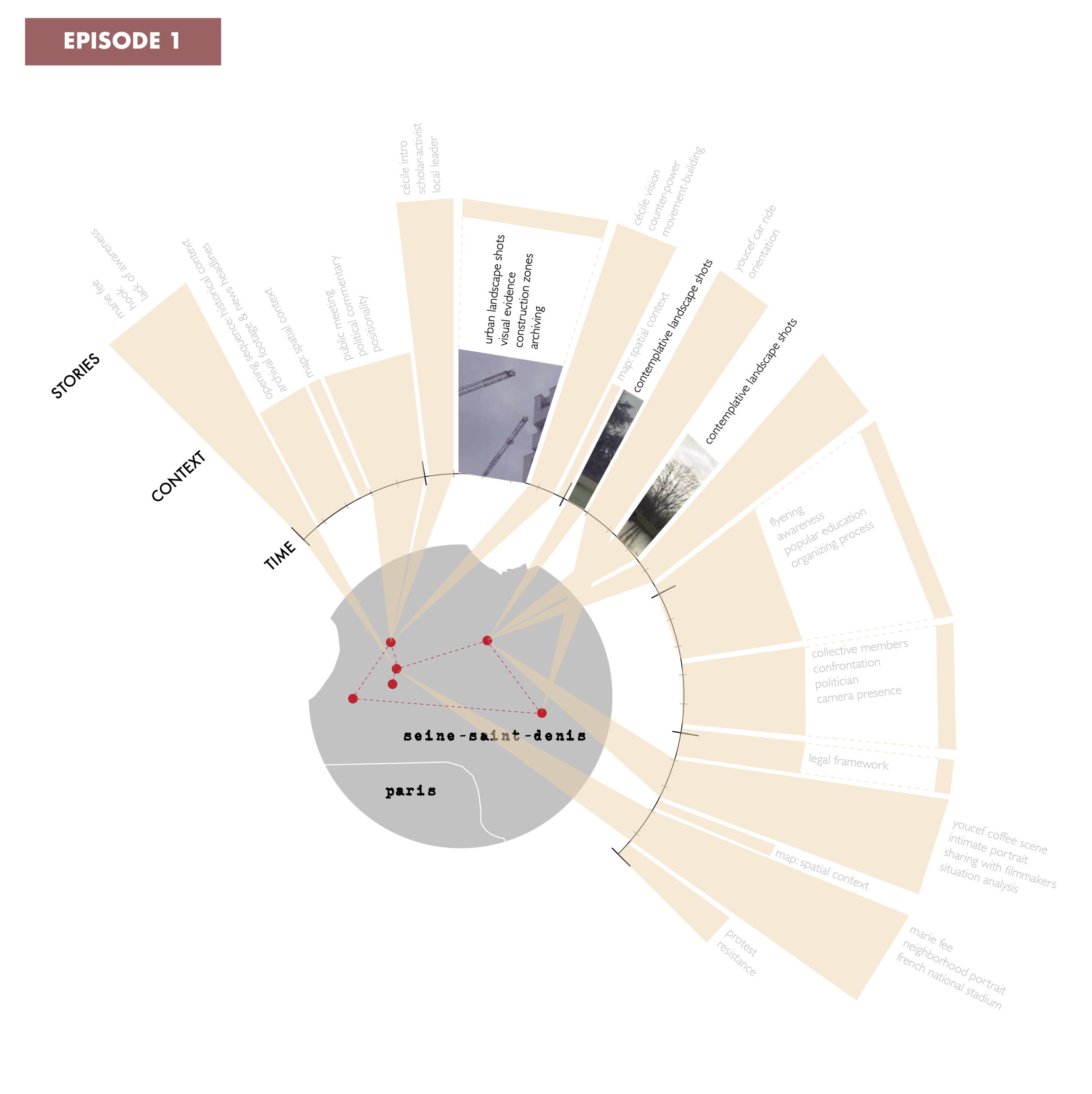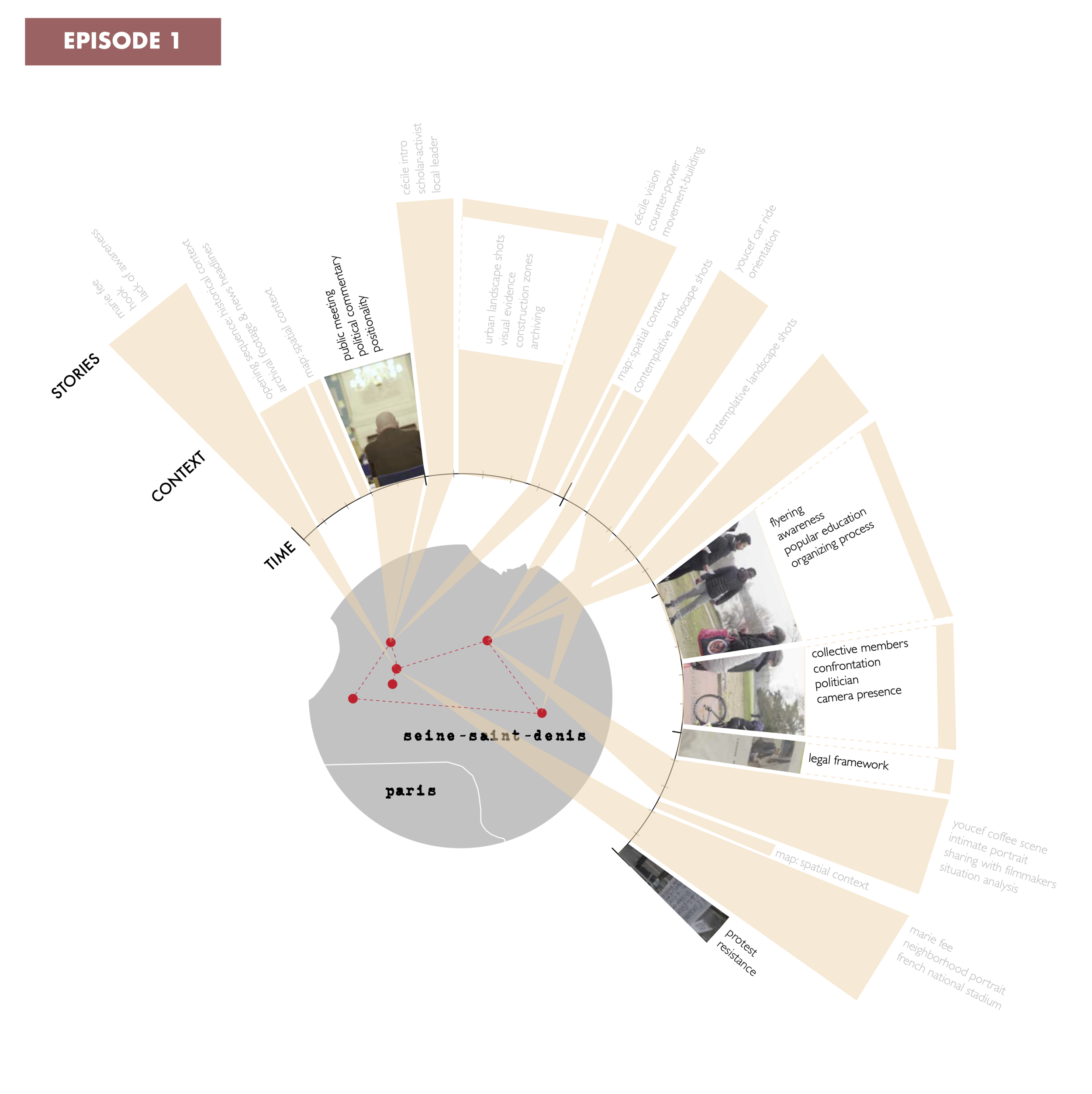ENJEUX 2024: REFRAMING THE STAKES OF THE PARIS 2024 OLYMPICS
PROJECT a documentary web-series that highlights the threats of the upcoming 2024 Olympics in the Parisian banlieue through the eyes of local residents and activists.
COLLABORATORS Folio Films; Comite de Vigilance JO 2024 Saint-Denis; Notre Parc N’est Pas A Vendre
LOCATION Seine-Saint-Denis, France and New York City, NY
FUNDING The New School Student Research Award
PUBLIC PRESENTATIONS
Inaugural New School Research Symposium (April 2019)
Shaping Critical Urban Practices (Bushwick Generator Exhibit, May 2019)
Film screenings + debates at La Fabrik Coopérative (Paris, October 2019) and at Le Landy Sauvage (Saint-Denis, October 2019)
PROBLEM STATEMENT
A longstanding material and symbolic rupture divides Paris from its surrounding banlieues along class and racial lines. After decades of disinvestment, the banlieues are becoming a new frontier of real estate speculation and gentrification as Paris becomes increasingly unaffordable. With mega-urban development projects such as the new subway network Grand Paris Express and the 2024 Olympics on the horizon, deindustrialized suburban land is being strategically revalued through top-down State mechanisms in partnership with private actors. In the words of geographer Neil Smith (1979), a profitable “rent gap” is being created, carving out a new terrain for capital investment. Eighty percent of Olympic sites will be located in Seine-Saint-Denis, a working-class suburb to the northeast of Paris home to many immigrant communities. While disguised in rhetoric around sustainability and equity, the 2024 Olympics provide a highly mediatized opportunity to rebrand Paris and its long-estranged suburbs as a global audience sets its eyes on the territory of Seine-Saint-Denis. Furthermore, the exceptional legal framework of the Olympics grants the State vast power to push forward unpopular development projects. If any lessons can be learned from previous Olympic iterations such as the 2012 London Games, it is that the Olympics tend to fast-track the dispossession of the poor and solidify the neoliberal mode of spatial production. In response to these threats, some residents in Seine-Saint-Denis have started mobilizing to claim their right to the city. However, current activist efforts around the Grand Paris and the 2024 Olympics tend to be siloed, and there is generally a lack of consciousness amongst the majority of residents of the stakes at play. To many, the 2024 Olympics seem like a distant event, which allows the State to quietly make major decisions with minimal resident involvement. How then, can these future threats be made tangible?
INTERVENTION: POPULAR EDUCATION THROUGH FILM
Enjeux 2024 is a documentary series that highlights the threats of the upcoming 2024 Olympics in Seine- Saint-Denis through the eyes of local residents and activists. Rooted in popular education, community organizing, and feminist research methodologies, I developed this project through an iterative fieldwork-driven process in conversation with residents and civic groups and in collaboration with documentary filmmaker Alex Zimmer. Enjeux 2024 will be composed of several 20-minute episodes released annually in the lead up to the Olympics. The docu-series will be distributed online and through local film screenings in Seine- Saint-Denis to maximize accessibility and create collective spaces for conversation and movement-building.
Throughout Enjeux 2024, testimonials and portraits of inhabitants are interwoven to depict the socio-spatial stakes of the 2024 Olympic Games. Through the eyes of those most directly concerned by these urban disruptions, the viewer understands the risks of evictions of inhabitants, the destruction of green spaces, and the increasing police presence throughout the streets of Seine-Saint-Denis. Over the course of the episodes, the series reveals how under the “state of exception” created by Olympics, the maintenance of order becomes essential to give a beautiful image of Paris on an international scale, at the expense of local residents.
Ultimately, our purpose is to use film as an infrastructure to circulate resident wisdom, share research insights, and archive the Olympic development process over the next few years. In the immediate term, my collaborator and I hope Enjeux 2024 will increase awareness around how the Olympics have become a tool to retrofit cities through top-down plans. By portraying socio-spatial dynamics from gentrification to the militarization of public space through the contested terrain of the Olympics, our aspirations are that Enjeux 2024 will generate broader conversations on space, race, the State, citizen power, and the right to the city. The film will be used as a basis for conversations around social and spatial justice questions such as: For whom do we build the city of tomorrow? Who is excluded from the citymaking process? What systemic injustices does the way we build our cities reveal? How can we shift power form the State and the private sector to the grassroots?




EPISODE 1
We released the first episode of Enjeux 2024 in 2019 through a series of free film screenings and debates organized in partnership with activists groups Droit à la (belle)ville and Comité de Vigilance JO 2024 Saint-Denis. Episode 1 interweaves threes stories filmed with residents in Seine-Saint-Denis, coupled with historical, spatial, and political context.
The historical context is conveyed through an opening sequence composed of archival footage and newspaper headlines that inscribes the 2024 Olympics in a longer history of mega-sporting events and their often disastrous aftermath. The spatial context is embodied by an animated map that appears multiple times through the episode, visualizing how the different stories are nested within a shared geography.
Finally, the political context is translated through scenes filmed at public meetings, protests, and day-to-day community organizing activities with our film characters, revealing both the State technocracy at work and the contested terrain of Seine-Saint-Denis. This first episode makes it possible to contextualize the series so that the public understands the transformations already underway in Seine-Saint-Denis.
